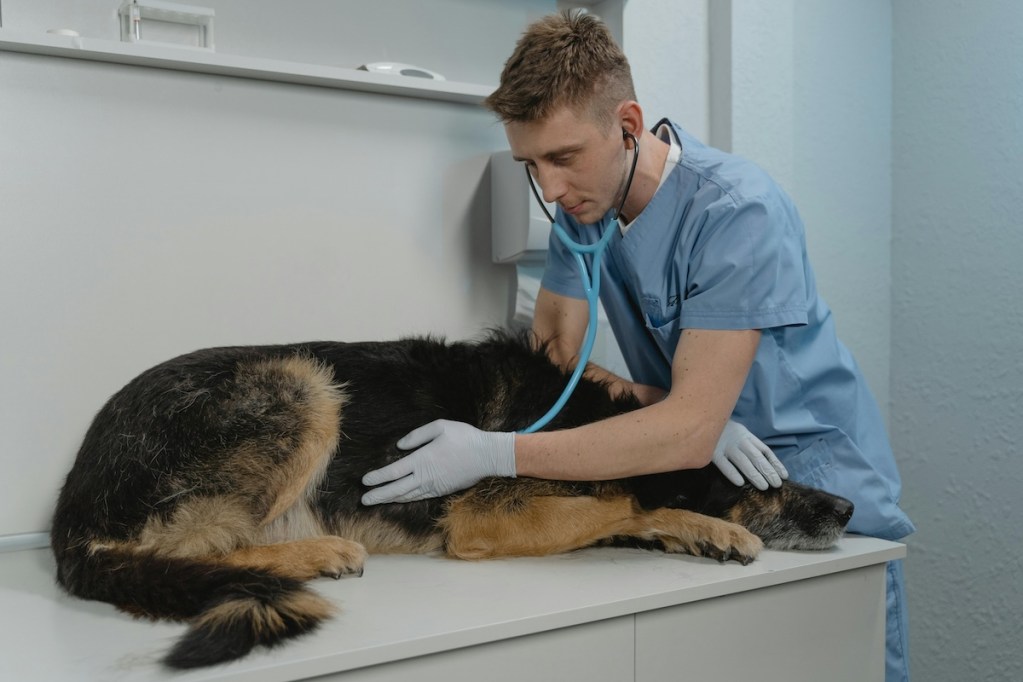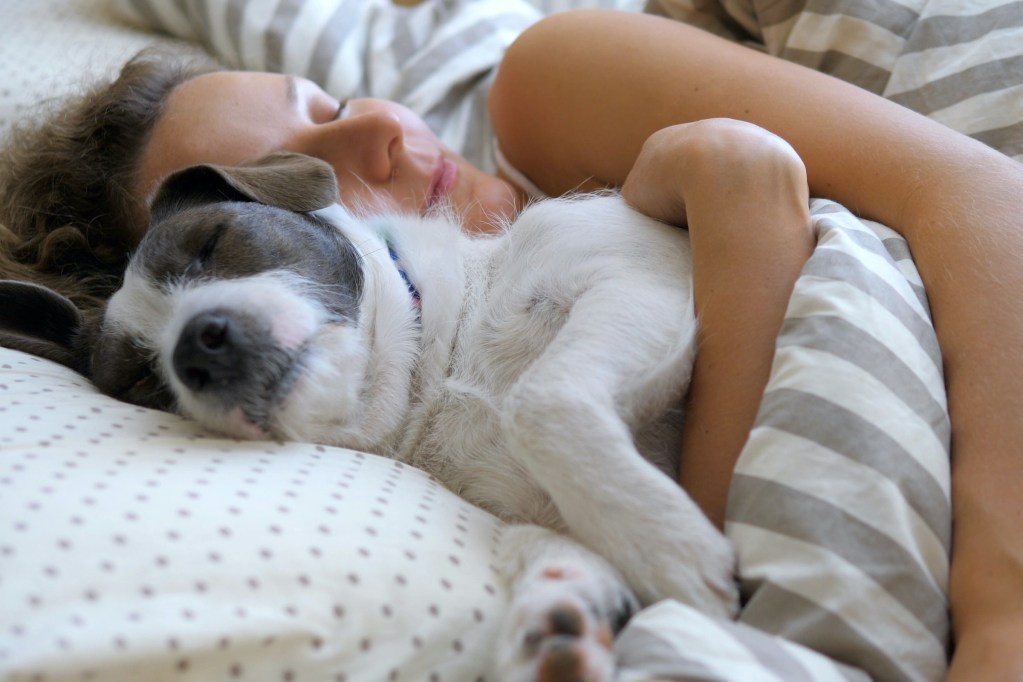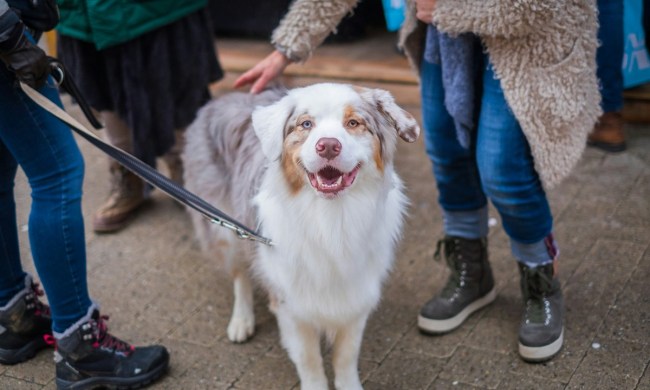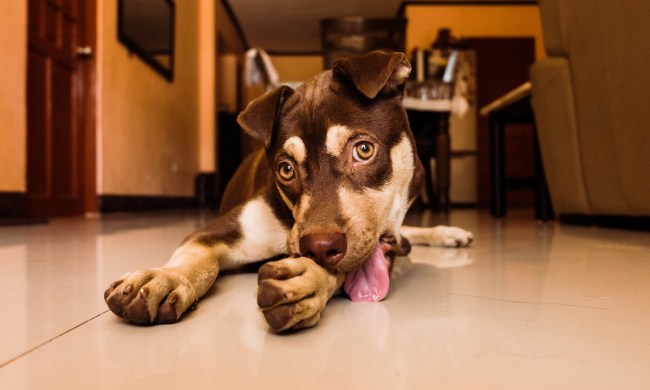Most of the time when our dogs have digestive issues, it means they got into something they shouldn’t have or wolfed down their food too quickly. Rarely, it’s a sign of something more severe, which could include a chronic issue. Some dogs develop pancreatitis, which is when the pancreas gets inflamed and leads to symptoms like diarrhea and vomiting. Getting a diagnosis will certainly be the first step, but you also need to take good care of your buddy until they get better — most pups with the mild version make a full recovery. In the meantime, here’s how to comfort a dog with pancreatitis.
What is pancreatitis in dogs?

The pancreas serves as a digestive organ, which is next to the stomach, and it produces special enzymes. Sometimes, the pancreas swells up and that can make your little guy very sick. When pancreatitis happens, the enzymes that live there wind up slipping into other parts of the abdomen and can harm the liver, gall bladder, and more.
Pancreatitis can occur in any dog, and it’s considered to be a fairly common condition. Some breeds get it more often than others, including cocker spaniels, poodles, Yorkshire terriers, and miniature schnauzers. In addition, older and female beasties get this condition more often. Usually, pooches will only have pancreatitis once but others will develop it as a chronic condition that requires further management.
What are the causes of pancreatitis?

It’s hard to tell exactly what causes this disease, and in some cases, it might be nothing that we can uncover. However, it seems that fatty foods or certain medications may trigger it in particular. The normal digestive process allows enzymes to go from the pancreas and into the small intestine, but when pancreatitis happens, the enzymes wind up doing more harm than good. Since these chemicals activate early, they harm the little organ itself. This leads to vomiting, diarrhea, nausea, abdominal pain, and even death.
It’s tricky to spot pancreatitis as the cause, as opposed to any other condition that gives these (pretty common) symptoms. Get your dog’s medical team involved quickly when it looks like the vomiting might be part of something more serious.
How to comfort a dog with pancreatitis

You want to take your dog straight to the vet if you think they might have pancreatitis. An official diagnosis will allow you to make the right decision for their care, and the dog doctor may choose to administer some treatment there, like IV fluid. However, once you get the go-ahead to bring your fur baby home, you should keep your pet comfortable until all the symptoms clear up.
Feed only small meals
You may need to hold back food entirely for a short amount of time, but your vet will tell you when it’s safe to resume feeding. Keep the feeding schedule to three or four very small meals every day and make sure the food is low fat (remember that fatty foods are a trigger). They might wind up on a low-fat diet even after the episode has passed to ensure that it doesn’t recur.
Give anti-nausea medicine
Of course, you’ll only give any meds that your vet allows, but anti-nausea medication frequently helps a dog suffering from pancreatitis. You might notice your four-legger drooling or gagging, and that will tell you they’re not feeling good. Hopefully, after the pills kick in, they will go back to eating, which helps recovery.
Provide pain killers
We never want our little guys to feel any pain, so your vet will likely send you home with some if it’s safe for them. You may notice your dog in a “praying” position, which often indicates abdominal pain. Follow the instructions carefully because some pain meds can have severe side effects when not delivered properly.
Support your pet
It takes more than just some good drugs to get your animal through pancreatitis. Give them some extra pets and focus on their comfort. Fido may need to avoid exercise, though they’ll still have to go out on walks or to the backyard for potty breaks.
Having a sick pet is really hard on both of you, especially when you might worry that it’s a more serious or chronic condition. The good news is that most cases of pancreatitis go away if you follow these suggestions and work closely with your vet every step of the way. While you do need to make sure that this doesn’t come back, your dog will get through this episode if you take good care of them and keep them comfortable the whole time. With luck, your fur baby make a full recovery and you both won’t have to go through this again.




